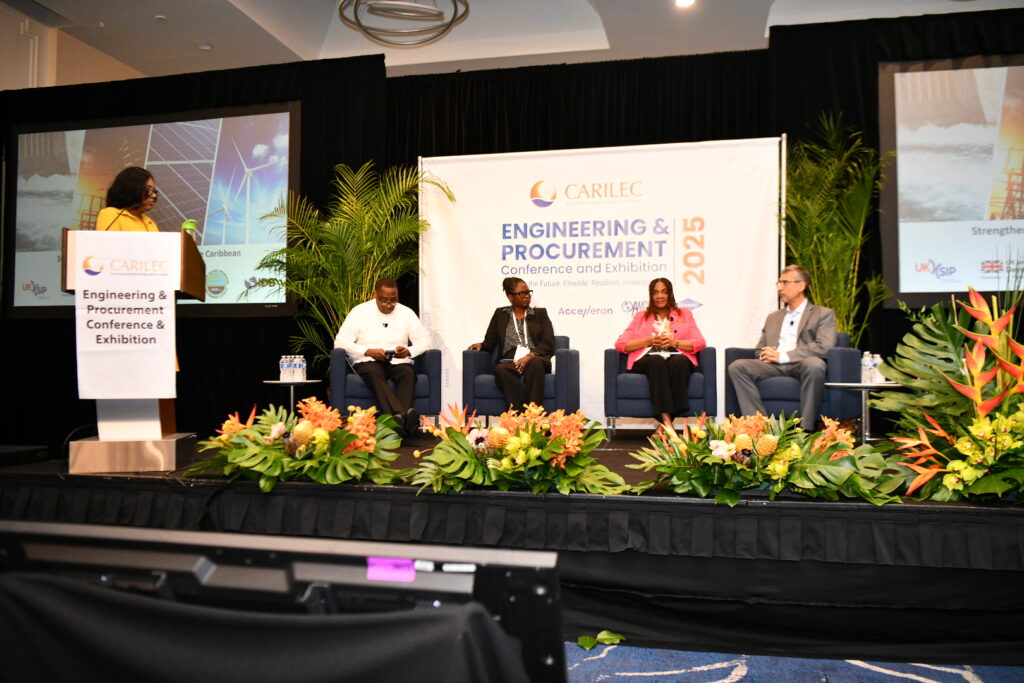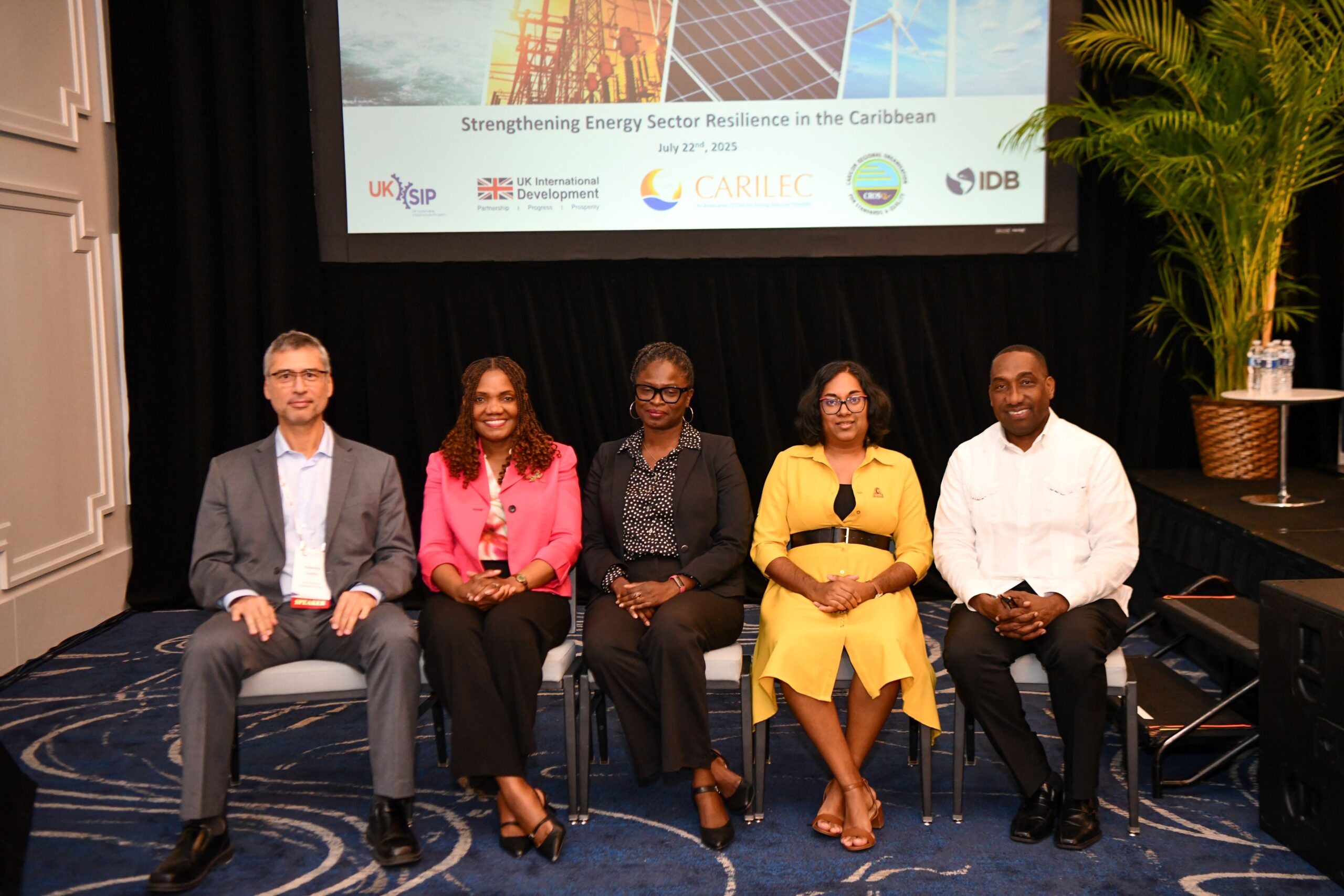For the people of the Caribbean, extreme weather is a growing threat that disrupts the electricity grid—and therefore every corner of the economy. Hurricanes are becoming more powerful and frequent, placing significant pressure on power infrastructure and leaving communities vulnerable to prolonged power outages.
Recent storms have demonstrated the impact of extreme weather on power systems. In 2019, Hurricane Dorian inflicted more than US$130 million in damages to The Bahamas’ power infrastructure, while Hurricane Beryl in 2024 caused widespread power outages that affected nearly half a million people in Jamaica.
Upgrading Caribbean power systems could generate net benefits of US$4.3 billion across the Caribbean over the next two decades, mainly by reducing the cost of recovering from extreme weather events, according to estimates by the Inter-American Development Bank (IDB). But the lack of funding and limited access to technology and technical expertise often leave these investments beyond the reach of Caribbean countries.
That’s why the IDB, through its ONE Caribbean and Regional Public Goods Initiatives, has partnered with the United Kingdom’s Sustainable Infrastructure Programme (UKSIP) on a three-year technical cooperation programme to strengthen energy systems across seven Caribbean nations: Barbados, Belize, Guyana, Jamaica, Suriname, The Bahamas, and Trinidad and Tobago. The programme will help improve utilities’ disaster response capacity, strengthen regional energy integration, and support the development of financial instruments to speed up post-storm recovery – helping make power outages less frequent and keeping critical services running when they are most needed.
Strengthening Disaster Preparedness in the Energy Sector
The IDB’s partnership with UKSIP aims to mitigate the impact of extreme weather on power systems through a collaborative approach that brings together institutions across the Caribbean region to enhance energy systems, making them stronger, smarter, and more resilient to disasters. It is built on three pillars:
- Disaster response: Working in coordination with the Caribbean Electric Utility Services Corporation (CARILEC), the program will help utilities prepare for emergencies by improving their response plans, establishing protocols for service restoration after a natural disaster, building stronger and more reliable renewable energy systems, and offering training to strengthen the skills of key energy professionals across the region.
- In partnership with the CARICOM Regional Organization for Standards and Quality (CROSQ), the program will also advance the harmonization of energy standards. The first phase will focus on accelerating the adoption of regional energy efficiency building codes and minimum performance standards for lighting and cooling, with future efforts expanding to battery storage, electric vehicles, charging systems, and grid codes to improve safety, interoperability, and regional integration. This kind of alignment strengthens energy security by promoting renewable and efficient technologies. It facilitates coordinated emergency responses, enabling utilities to restore power more quickly and access compatible equipment, especially during times of crisis.
- Financial Risk Management: Another crucial element of the program is helping utilities better manage financial risks. In collaboration with the Caribbean Catastrophe Risk Insurance Facility (CCRIF-SPC), the initiative is exploring the development of tailored risk models for regional utilities as well as new insurance instruments for renewable energy facilities.

Synergies with the broader Caribbean
As part of a broader commitment to supporting resilience in the Caribbean, the IDB Group has also deepened its cooperation with the Caribbean Development Bank (CDB) by partnering on investments in resilient physical infrastructure, improved project preparation for climate-smart initiatives, and the development of financial tools that give countries greater fiscal flexibility after climate shocks. Aligned with CDB’s Accelerated Sustainable Energy and Resilience Transition – 2030 (ASERT‑2030) programme, this partnership fosters strategic alignment with non-IDB member countries in the Caribbean while strengthening regional capacity to withstand and adapt to escalating climate risks.
Additionally, members of the Organization of Eastern Caribbean States (OECS), namely Grenada, Saint Kitts and Nevis, Saint Lucia, and Saint Vincent and the Grenadines, will similarly be supported through the Strengthening Power Sector Resilience in Caribbean Island States project. Conceptually developed with the support of IDB, this initiative will be implemented by CARILEC and is funded under the second cohort of the Infrastructure for Resilient Island States (IRIS) programme. This project aims to support technical compatibility, coordination, and cooperation mechanisms among regional utilities, while also enhancing CARILEC’s Disaster Assistance Programme (CDAP) framework.
Securing Energy Resilience for Generations to Come
Strengthening energy resilience across the Caribbean is not only essential for safeguarding the well-being and economic stability of its people but also for securing a sustainable future for the region. Through strategic investments and strengthened regional collaboration, the devastating impacts of natural disasters can be significantly reduced. Improved energy infrastructure will minimize outages and enable faster recovery, ensuring that critical services remain reliable when communities need them most. These collective efforts lay the foundation for a Caribbean that is better prepared to face climate challenges, fostering long-term prosperity and security for all its citizens.
Learn more about our work in the Caribbean.
Critical infrastructure in Latin America and the Caribbean: technologies changing the game
The Future of Energy Storage in the Caribbean
A Renewable-Energy-Powered Future for Barbados
Acknowledgments
We would like to express our sincere appreciation to those who contributed to the development of this post. Special thanks to Henry Wisbey-Broom and Charles Laidlaw from UKFCDO for their constructive feedback. We are also grateful to our colleagues Nayeli Mayorga Acosta, Gabriela Montes De Oca Fehr, Remi Rijs, Heather Bernard, and Sheries Ruddock for their continued support and engagement. Their input has been invaluable in shaping and refining our work.


Leave a Reply